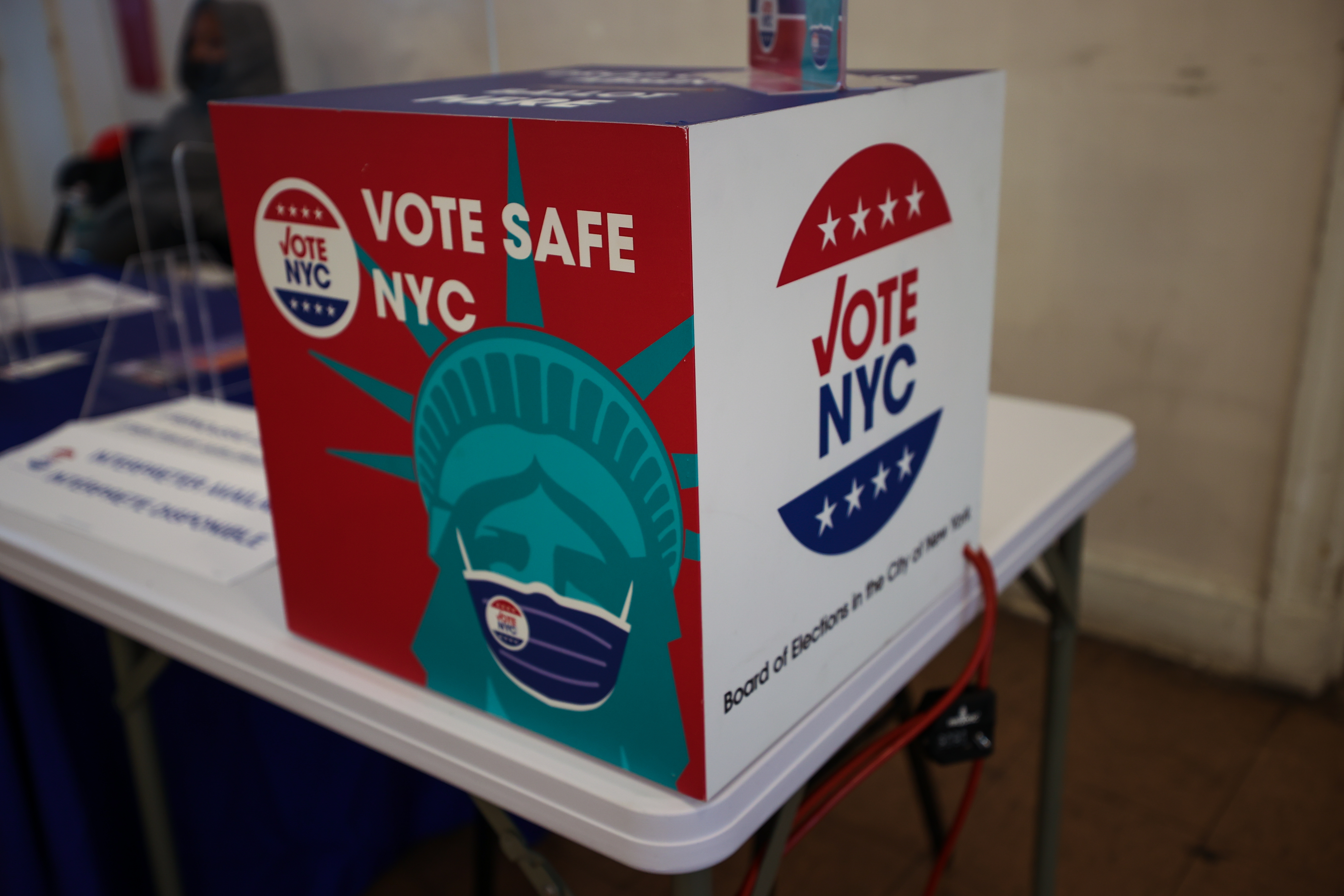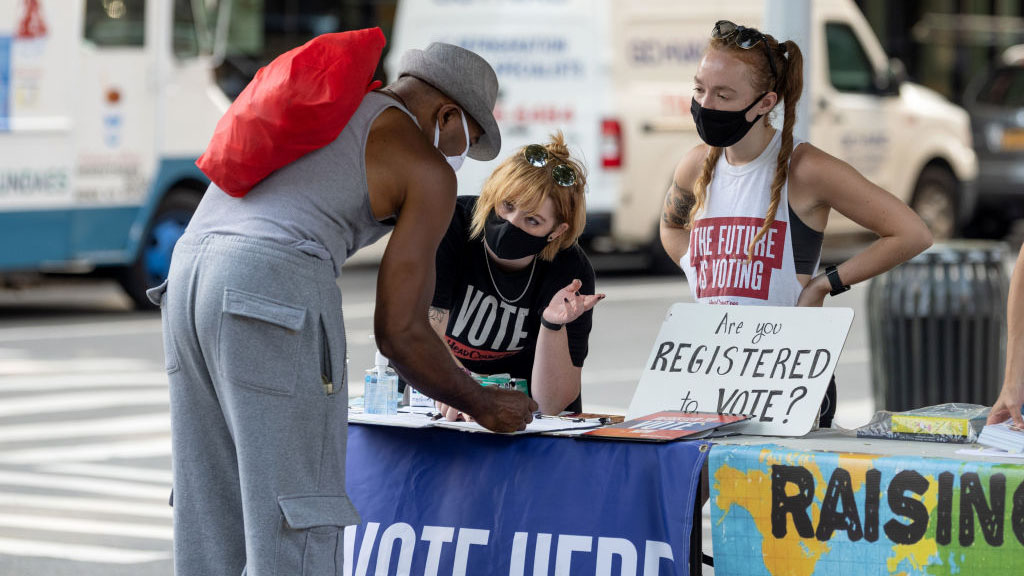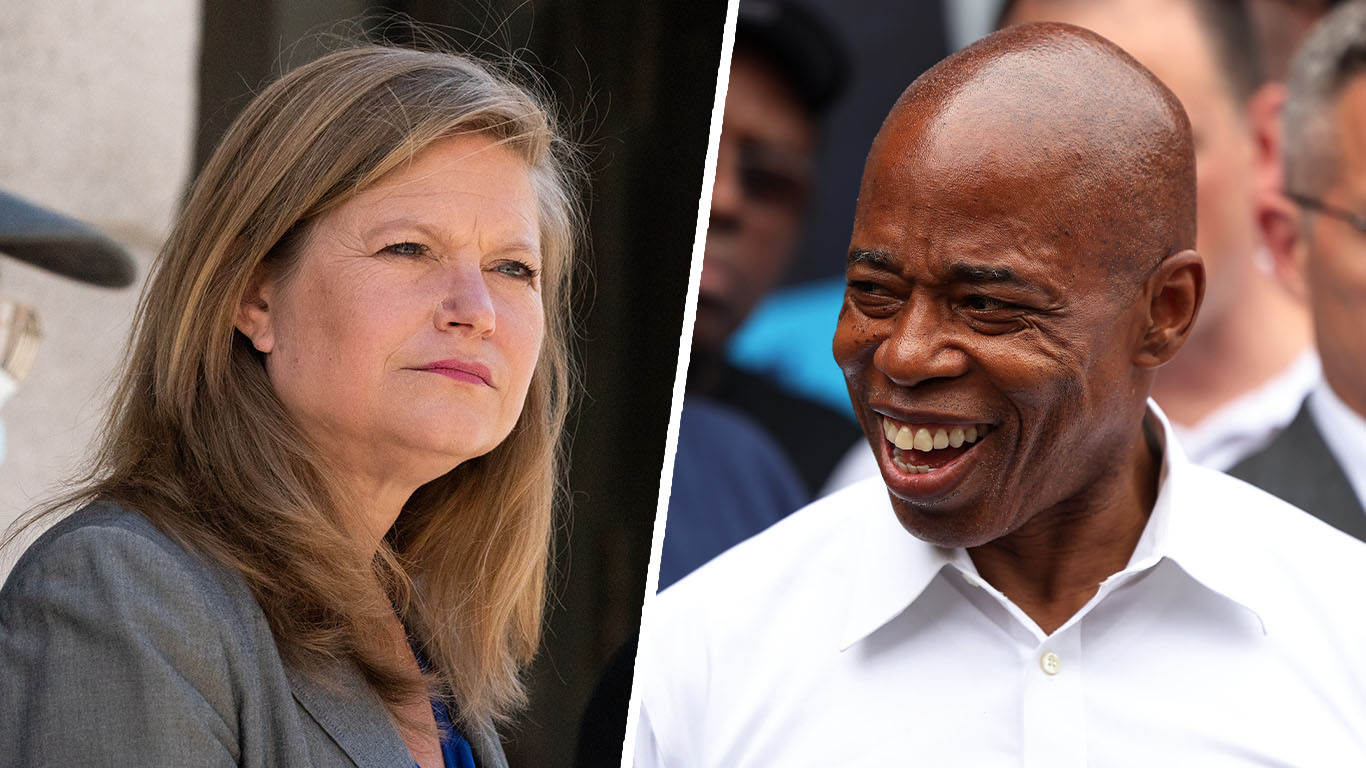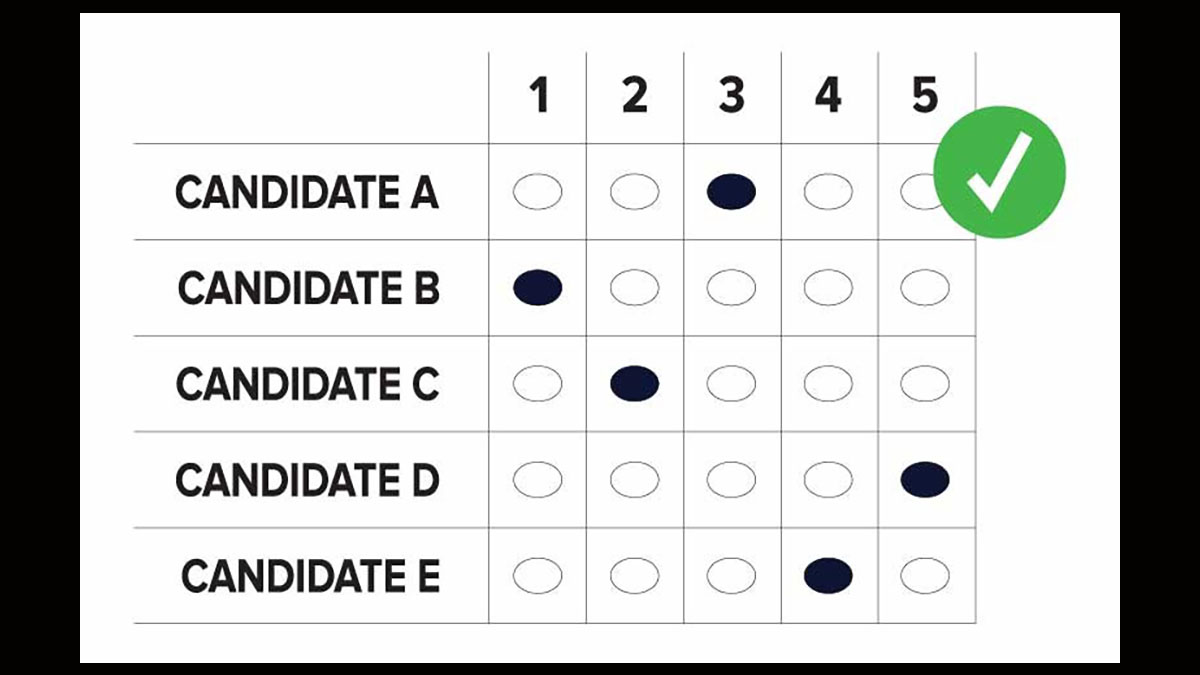What to Know
- Brooklyn Borough President Eric Adams proclaimed victory in the race for the Democratic nomination for NYC mayor, with the Associated Press projecting him the winner
- More than 100,000 absentee ballots were included in Tuesday's primary results update from the NYC Board of Elections, and the latest results showed Adams with a lead of about 8,400 over Kathryn Garcia
- The BOE said there are still absentee ballots to be tallied, but that didn't stop Adams from touting a "historic, diverse, five-borough coalition led by working-class New Yorkers" that led him to victory
Brooklyn Borough President Eric Adams held on to his tight lead in the latest count of ranked-choice voting and is projected to win the Democratic nomination for New York City mayor, a fact second-place finisher Kathryn Garcia acknowledged as she conceded the race to him on Wednesday.
In making her concession, the former New York City sanitation commissioner said she "cracked the hell out of" the glass ceiling but it's still not broken. She said Adams will be the nominee, whom she has vowed to support. Former civil rights attorney, who was third in the latest results round, also congratulated him.
Numbers released by the New York City Board of Elections Tuesday showed Adams with a lead of just 8,426 over Garcia. Adams had 403,333 votes, or 50.5 percent, just enough to edge Garcia's 394,907 (49.5 percent) after eight rounds of ranked-choice voting.
Get Tri-state area news delivered to your inbox.> Sign up for NBC New York's News Headlines newsletter.
That said, Adams' and Garcia's respective shares of the final vote can be deceiving. Nearly 938,000 votes have been counted in the race for mayor, and about 140,000 of the ballots didn't rank Adams or Garcia anywhere on their ballots, so those votes were eliminated under the ranked-choice system.
Heading into Tuesday, Garcia was ahead of Wiley by just a couple hundred votes, but the approximately 125,000 absentee votes counted increased her lead in round seven over the civil rights attorney. And while she cut into Adams' overall lead in the eighth and final round, it did not appear to be enough to catch him.
Adams was the first choice among 31 percent of voters, followed by Wiley at just over 21 percent and Garcia at just under 20 percent. In all Adams was ranked ahead of Garcia on 43 percent of the total votes counted, while Garcia was ranked ahead of Adams on 42 percent. Fifteen percent of voters didn't rank either candidate.
The BOE said there are still a number of absentee ballots to be tallied, as voters who made minor clerical errors still have some time to fix them and get their votes counted. Despite Tuesday's latest numbers, final results in the race could still be weeks away — but that didn't stop the Adams campaign from celebrating.
"While there are still some very small amounts of votes to be counted, the results are clear: an historic, diverse, five-borough coalition led by working-class New Yorkers has led us to victory in the Democratic primary for Mayor of New York City," Adams said. "Now we must focus on winning in November so that we can deliver on the promise of this great city for those who are struggling, who are underserved, and who are committed to a safe, fair, affordable future for all New Yorkers."
Adams, 60, was a police captain and state senator before becoming borough president. The post handles some constituent services and discretionary city spending but doesn't have lawmaking power. He plans to march in NYC's Hometown Heroes ticker-tape parade for essential workers on Wednesday.
Should he win the general election in November, Adams would be the second Black mayor after David Dinkins served from 1990-1993. The moderate Democrat appealed to the political center during his campaign and promised to strike the right balance between fighting crime and ending racial injustice in policing.
He said he was running to "deliver on the promise of this great city for those who are struggling, who are underserved, and who are committed to a safe, fair, affordable future for all New Yorkers.”
Wiley issued a statement after the latest numbers were released, in which she thanked supporters and staff and said "we will have more to say about the next steps shortly." She also took that opportunity to criticize the BOE's handling of the election.
"We now have an initial and uncertified counting of absentee ballots and tabulation of Rank Choice Voting. It would be an understatement to express dismay at the BOE's administration of this election. And that has made today's brunch at dinnertime, a long and drawn-out day for New Yorkers," Wiley said.
"Today we simply must recommit ourselves to a reformed Board of Elections and build new confidence in how we administer voting in New York City. New York City's voters deserve better, and the BOE must be completely remade following what can only be described as a debacle."
The unofficial results come two weeks after polls closed and a week after a tallying flub marred the debut of ranked-choice voting in the race for the nation's most prominent municipal job.
Adams, Garcia and Wiley had all filed lawsuits seeking to review the ongoing ranked-choice tally. The mistake had no impact on the final outcome of the race, however. Adams' campaign said it withdrew its lawsuit Wednesday, citing "yesterday's decisive results."
"The election is clear and the people have spoken, and so there is no longer a need to preserve our legal right to a court-supervised review," the campaign said.
Adams appears poised to face Republican nominee and Guardian Angels founder Curtis Sliwa in a city where registered Democrats outnumber Republicans 7-1, though two of the last three mayors won as Republicans. The incumbent, Democrat Bill de Blasio, is term-limited.
When voting ended on June 22, Adams had a lead of around 75,000 votes over Wiley, with Garcia a close third, in a count that included only in-person voting and only voters' first choices.
That was just the first of many rounds of calculations under the ranked-choice system. It lets voters select multiple candidates in order of preference, so their votes can go to their alternate picks if their higher-ranked choices get too little support to prevail.
Last week, the elections board released the results of a ranked-choice analysis of just the in-person votes — and retracted it hours later, saying the computation accidentally included about 135,000 test ballots.
The board, which has been criticized for decades as bumbling and ill-managed, released corrected figures a day later. Those numbers showed Adams leading Garcia by about 15,000 votes, with Wiley less than 350 votes behind in third place.
Decision 2021
Adams became a police officer in 1984 and rose to the rank of captain before leaving to run for the state Senate in 2006.
While in the police department, he co-founded 100 Blacks in Law Enforcement Who Care, a group that campaigned for criminal justice reform and against racial profiling.
After winning a state Senate seat from Brooklyn in 2006, Adams made an impression with an impassioned speech favoring same-sex marriage rights in 2009, two years before New York’s state legislators passed a marriage equality bill.
Adams also weathered a few controversies, including a 2010 report from the state inspector general that faulted his oversight of the bidding process to bring casino gambling to the Aqueduct Racetrack in Queens. Adams had accepted campaign contributions from a politically connected group bidding for the gambling franchise.
Adams was elected in 2013 as Brooklyn borough president, his current job.
Adams is a vegan who credits a plant-based diet with reversing his diabetes. He has a 25-year-old son, Jordan Coleman, with a former girlfriend. His current partner is Tracey Collins, an educator who holds an administrative job in the city’s public school system.
Journalists raised questions during the race about where Adams lived. He was born in Brooklyn, walked the beat there as a cop, owns real estate there and represented it in the state Senate. But he slept in his office in Brooklyn Borough Hall for months during the pandemic and opponents noted that he shares a place with his partner in Fort Lee, New Jersey.
Adams gave reporters a tour of a basement apartment in Brooklyn that he said was his primary residence.
Adams can be a charismatic speaker but has also said cringe-worthy utterances, such as his 1993 suggestion that Herman Badillo, a Puerto Rican-born politician, should have married a Latina instead of a white, Jewish woman.
Speaking at a Martin Luther King Jr. Day event last year, Adams complained about gentrifiers moving to the city from elsewhere.
“Go back to Iowa. You go back to Ohio,” Adams said. “New York City belongs to the people that were here and made New York City what it is.”





